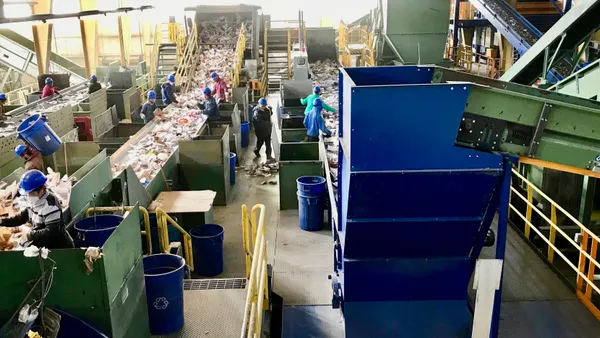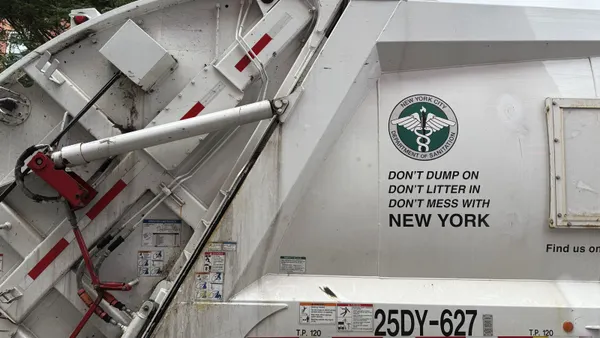Dive Brief:
- The U.K. is considering a countrywide ban on plastic straws, while citywide plastic straw bans have passed in coastal communities in Florida such as St. Petersburg, Miami Beach and Fort Myers, as well as California communities including Monterey, Malibu, Manhattan Beach and Berkeley. A plastic straw ban is also set to take effect in July in Seattle, the largest city to join the growing list.
- Nonprofit advocacy groups are leveraging celebrities, viral social media campaigns and publications to drive change around the issue of plastic in waterways, with campaigns focused exclusively on phasing out plastic straws.
- Proactive initiatives from businesses have already begun with some coastal restaurants and bars using paper straw alternatives, and only making them available upon request.
Dive Insight:
Questions still remain around implementation and enforcement; however legislation for plastic straw bans is gaining momentum. The laws outline fines for the manufacture, sale and distribution of plastic straws, and include directives for businesses to offer biodegradable alternatives. Some business owners are finding the law to be overreaching and cost-prohibitive, while others say that it is cost-neutral to switch and even though paper straws cost more, they’re not going through as many.
The U.K. has already placed fees on plastic bags and has banned microbeads. Scotland’s a bit further along with proposed legislation to ban the straw by January, and the E.U. has even hinted at banning all single-use plastics by 2030.
Fueling the urgency for action are nonprofit advocacy groups like Lonely Whale, focused on working toward a "Strawless Ocean." By using catchy hashtags like #stopsucking, and teaming up with celebrities for viral PSAs, Lonely Whale's been able to raise awareness around the challenge of plastic pollution. The Ellen MacArthur Foundation has also been active in this space, particularly around addressing the economics of the challenge.
Both Marriott International and Live Nation have pledged to take action, adopting voluntary bans with plans underway to phase out the use of plastic straws. McDonald’s, the largest company to weigh in on the issue, has committed to discontinuing the use of plastic straws in 1,300 of its U.K. locations, replacing them with paper straws. U.K. supermarkets are also getting involved, with some chains planning to discontinue the sale of plastic straws by September of 2018.
Plastic manufacturers claim that bans are not the answer to adequately address plastics in our oceans. They cite collection, recycling, and costs as the real challenges, stating that "if there are better alternatives, we are open to using them," according to CNBC.









